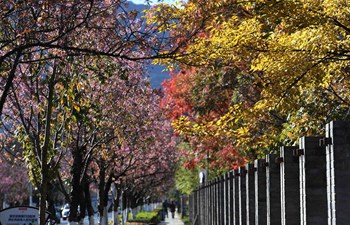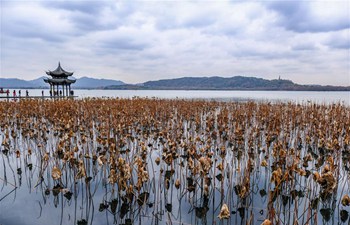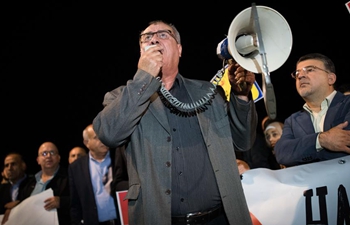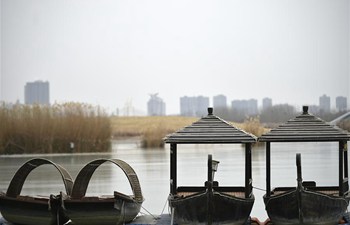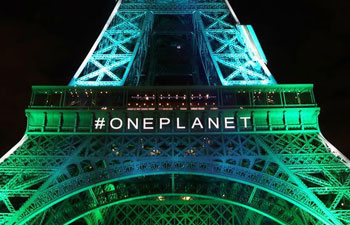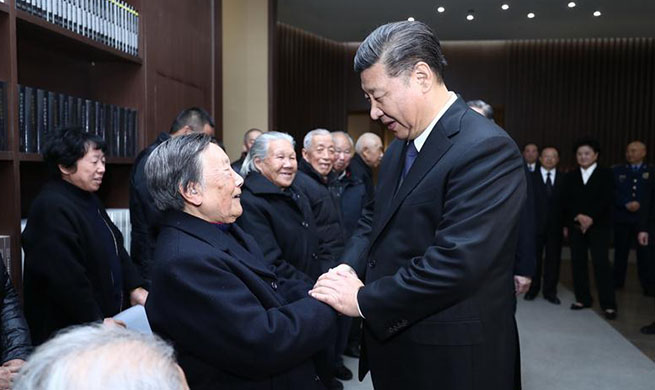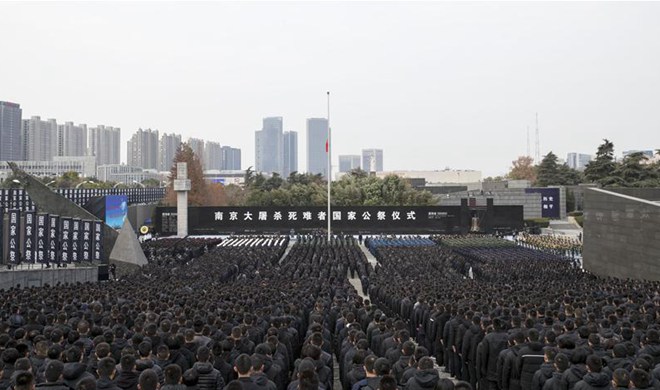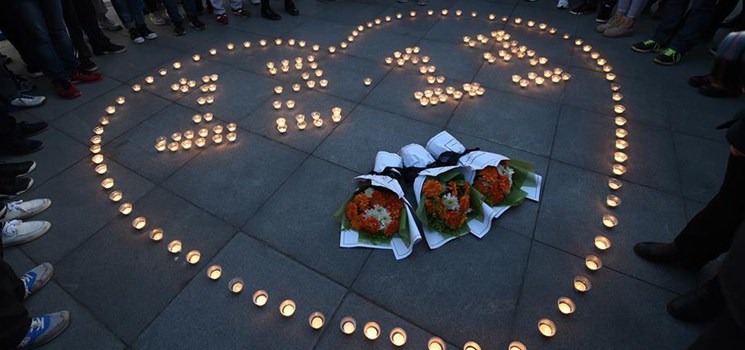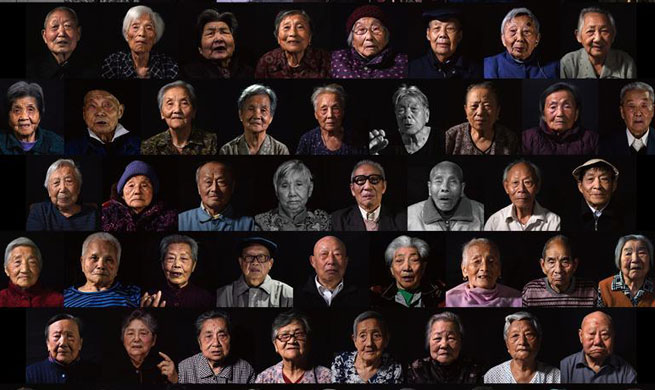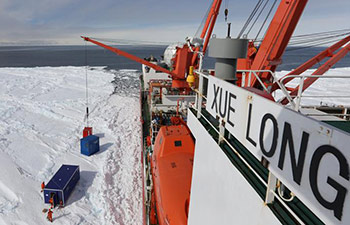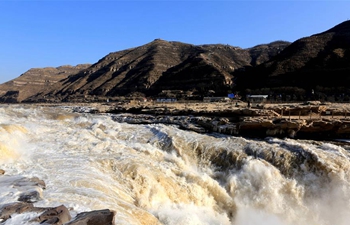ALGIERS, Dec. 13 (Xinhua) -- Algeria has been struggling to deal with the impact of a financial crisis caused by an oil price decline, by introducing a series of measures to diversify its oil -dependent economy.
But these measures, including limiting imports, increasing public expenditure, and easing monetary policy, have also raised fears about rising inflation and further depreciation of its currency.
Due to the oil price plunge in the past three years, foreign exchange reserves in Algeria have fallen by nearly half, from 200 billion U.S. dollars in 2014 to nearly 100 billion dollars currently.
Under pressure, the government has introduced a series of reforms aimed at reviving its economy that has been heavily dependent on oil.
Firstly, a strict policy of limiting imports has been imposed by reducing licenses to importers, in a bid to block the importation of what the government calls as "unnecessary goods," such as vehicles, building materials, luxury furniture and exotic fruits.
The import licensing regime, which entered into force in December 2015, also aims at encouraging foreign companies to invest in Algeria.
Car dealers, for instance, have been forced to establish assembly plants of the brands they sell in Algeria. As a result, several world-renowned carmakers, such as Renault, Hyundai, Mercedes and Volkswagen, set up auto assembly lines across the country.
Other brands, including Peugeot, Chery and Fiat, are due to establish their own assembly plants in Algeria in 2018.
Secondly, the Algerian government plans to diversify its economy by boosting domestic engineering, petrochemical, pharmaceutical and food industries, by inking partnership projects with foreign investors.
Through boosting local production, Algeria aims to curb the imports, as part of its plan to stop the draining of its foreign exchange reserves.
Thirdly, the government will ease its monetary policy by increasing public expenditure and investment through 2018 to boost local industries, such as agriculture, to make them more competitive.
In October 2017, Algerian Prime Minister Ahmed Ouyahia said the government decided to revive public investment through increasing its budget for 2018, which will rise to more than 40 billion dollars, up by 10 billion dollars from 2017.
The government will also reactivate the National Investment Fund (FNI) to finance major investment projects, by providing cheap loans, he said.
Ouyahia also specified the measures to be taken to protect the domestic market, by reducing imports and encouraging more local production to meet the domestic needs.
Furthermore, the Algerian government has decided to boost its exports, by creating agencies to explore foreign markets, companies specializing in packaging, chartering and freight transport, and even private air or sea freight companies.
However, all those measures involve increasing public expenditure and funding at a time when the country is strained by a decline in oil revenues.
To resolve the funding problem, the Algerian parliament has approved unanimously a plan of action to allow the government to print more money, rather than resorting to foreign debt, to finance public debt and pay salaries of both civil servants and retirees, in addition to funding pending projects.
The government said it will print some 570 billion dinars (about 5 billion dollars) to help the Central Bank lend money to Public Treasury.
But Algerian opposition parties and antagonists have criticized this plan, warning that printing money would only delay the crisis' impact, as it would push inflation to record high levels, reduce the purchasing power of low-income citizens, and provoke further depreciation of the Algerian dinar.
Kamal Kheffache, an Algerian economic expert, told Xinhua that the best way to restore budget balance "is certainly fulfilling reforms and implementing the new business model, which would pave the way for curbing dependence on energy sector."
He said, rather than increasing public spending, it should be curbed, instead.
The government should focus on encouraging the private sector by improving the business climate, easing up administrative procedures, facilitating the investment process relating to the creation and management of business, including facilitating access to finance, particularly for small and medium-sized enterprises, Kheffache said.
He also suggested the government establish necessary mechanisms to improve corporate governance and create fair competition conditions, so to attract more foreign investment and develop a high-level vocational and education system which meets business needs.




